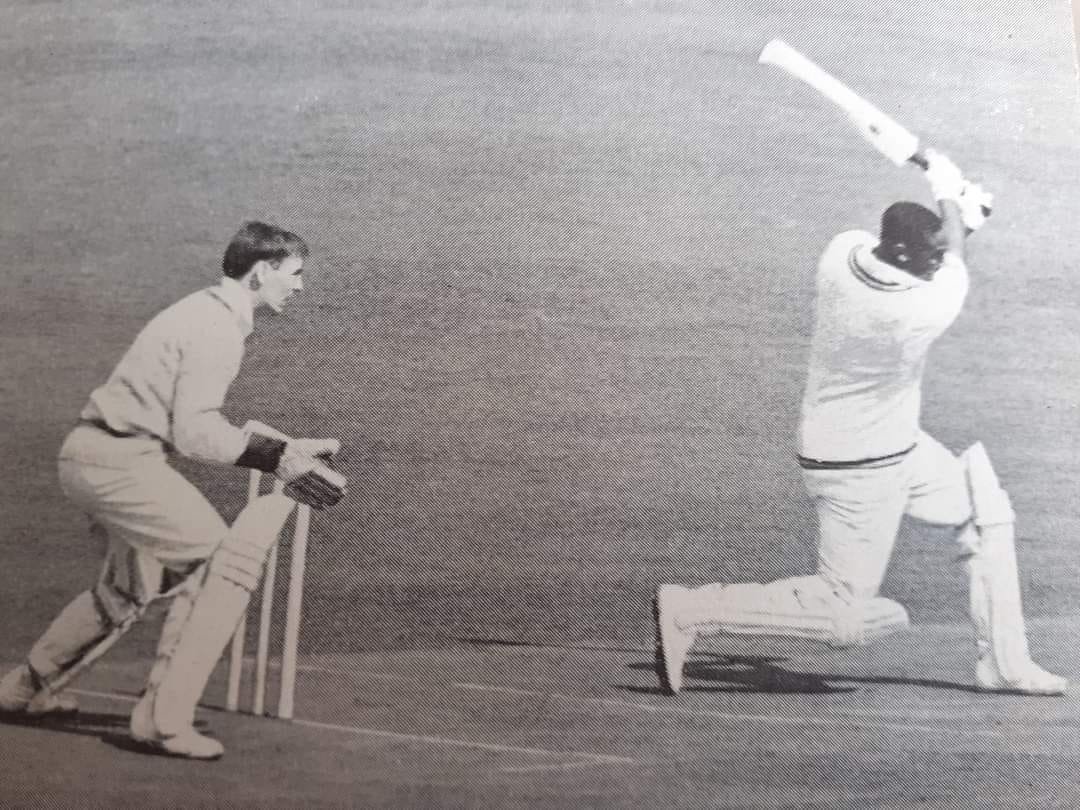Great captain and batsman Frank Worrell in conversation with Rex Alston, looks back on the West Indies tour of Australia in 1960–61 and the excitement of the famous tied Test match at Brisbane.
Alston: Coming back to cricket. Frank. How important is the team spirit of a side of a longish tour like this quite apart from what happens on the cricket field?
Worrell: Well, it is absolutely necessary on a six-month tour like this where you are playing six days a week because if there’s any sort of division, you find that these antagonisms will probably destroy the actual performances on the field.
Alston: Do you think that it’s a good thing that once you’ve established yourself after the first few months, the team can disperse a hit more so that they get a bit fresher?
Worrell: Yes, I’ve always been in favor of individuals who are resting, getting away from the game, because you seem to burn up just as much mental energy watching the game when you’re not immediately involved as when you actually play the game. It was always best for chaps who were resting to get away from it all. Go to the sea, beach, river, or what-have-you. I don’t advocate chaps sitting around the place.
Alston: When you were appointed captain of Australia, what was it, two years ago? Had you the opportunity to put any particular views into practice as a team captain as a result of being on so many other tours? Did you do things that other captains hadn’t done?
Worrell: The secret of our success was the fact that we gave the players the feeling that they’re responsible individuals and left it more or less to their own devices to fit in, and it’s amazing how marvelously the chaps accepted this sort of challenge.
Alston: Did you do a great deal of talking to the team, or did you get it all over in the early stages and say, ‘This is my philosophy, now go and do what I ask’?
Worrell: We had a pep talk at Perth and occasionally during the course of the tour, when things seemed to have been going wrong, we sort of gave them a little memory-jogger and everything went well. We had three serious talks in the course of the tour.
Alston: That tied Test match is now at Brisbane, what were your feelings about that? Now you were in the field, weren’t you? You were in command. It was your decision as to who was to bowl the last two or three overs. It was your decision to place the field and so on. Were you nervous?
Worrell: Not really. I was a bit worried, knowing West Indians as well as I do. I felt they might have cracked up under the strain, in the past, they’ve always cracked up. On the field, I was very concerned about holding them together. I was walking around, saying, ‘Steady on boys. Steady on boys. Don’t let it worry you.’ You know, ‘Bad luck boys, steady on boys,’ and we just seemed to have come through.
Alston: That last over, Wesley Hall bowled it, the fast bowler?
Worrell: Yes, that’s right.
Alston: And six runs were wanted.
Worrell: Yes.
Alston: And three wickets to fall. It’s a story-book thing, isn’t it?
Worrell: Yes.
Alston: Did you bring Wesley Hall back for that over, or had he been on before?
Worrell: He’d bowled three or four over’s before that with a new ball. We were very fortunate in that tied match in that the last chap was run out by Solomon, who moved across from cover, picked this ball up, and went back to the stumps, and he just turned around and threw it with one movement and hit the stump from about a straight line.
Alston: He had one stump to aim at?
Worrell: He had no chance to aim; he just turned around and threw.
Alston: And what were your feelings? You don’t remember?
Worrell: Well, things were a bit chaotic because we had a faction on the field feeling that, ‘Well, we’d won by one run.’ and another faction felt that we’d lost by one run, and I seemed to be the only one who was conscious of the fact that it was a tie.
Read More: Tied Test Australia vs West Indies 1959-60
